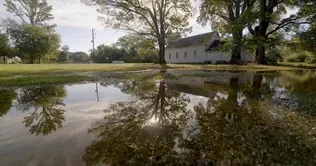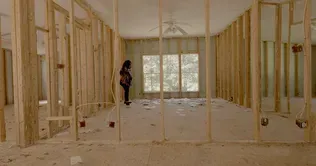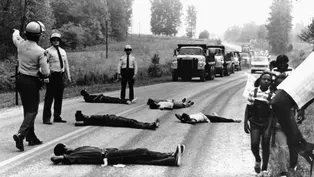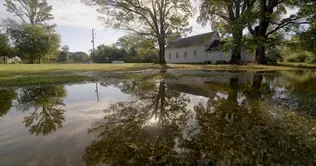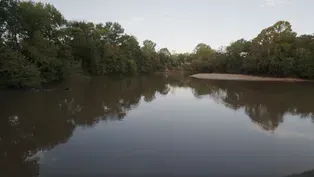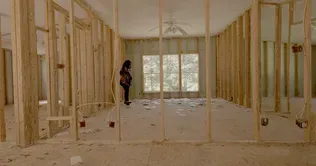
Beyond the Lens: Freedom Hill | Resita Cox
Clip: Season 16 Episode 4 | 17m 23sVideo has Closed Captions
A conversation with FREEDOM HILL's Resita Cox.
Filmmaker Resita Cox and DeVante Hudson of The Chisholm Legacy Project speak with Tina McDuffie, host of Local, USA, about FREEDOM HILL and the story of the historic Black town. Cox shares her own story to the making of film including an education of Princeville and environmental racism while Hudson provides a perspective of organizing, planning and obtaining resources within communities.
Funding for AfroPoP: The Ultimate Cultural Exchange provided by the Corporation for Public Broadcasting and the John D. and Catherine T. MacArthur Foundation. Funding for Local, USA provided by the...

Beyond the Lens: Freedom Hill | Resita Cox
Clip: Season 16 Episode 4 | 17m 23sVideo has Closed Captions
Filmmaker Resita Cox and DeVante Hudson of The Chisholm Legacy Project speak with Tina McDuffie, host of Local, USA, about FREEDOM HILL and the story of the historic Black town. Cox shares her own story to the making of film including an education of Princeville and environmental racism while Hudson provides a perspective of organizing, planning and obtaining resources within communities.
How to Watch AfroPoP: The Ultimate Cultural Exchange
AfroPoP: The Ultimate Cultural Exchange is available to stream on pbs.org and the free PBS App, available on iPhone, Apple TV, Android TV, Android smartphones, Amazon Fire TV, Amazon Fire Tablet, Roku, Samsung Smart TV, and Vizio.
Buy Now
Providing Support for PBS.org
Learn Moreabout PBS online sponsorshipWOMAN: The first flood, a hundred and some people came up out of this cemetery.
- Came up out of this... - Daddy came up.
WOMAN: Your daddy?
Hi, I'm Tina McDuffie, host of "Local, U.S.A." You've just watched a very special episode of "AfroPoP" in partnership with "Local, U.S.A." "Freedom Hill" unveils the story of Princeville, North Carolina, the oldest town in the United States chartered by African Americans.
Founded by emancipated slaves at the dawn of their freedom, Princeville was once a beacon of hope named Freedom Hill.
Despite its significant history, the town has faced economic and environmental challenges, notably, recurring floods from storms and hurricanes.
- Aw.
(sighs): Too many memories, so many.
I don't want to live here again.
They say a hundred-year flood.
It's only been 16 years.
MCDUFFIE: The documentary immerses us into the lives of Princeville residents as they battle to save their community, striving to rebuild and safeguard Freedom Hill from being erased by nature and neglect.
With us are two distinguished guests.
First, we have Resita Cox.
She's the director and producer of "Freedom Hill."
An Emmy Award-winning filmmaker, Resita's documentaries capture her community's resilience and spirit in the face of systematic racism.
Also joining us is DeVante Hudson, chief organizing officer for the Chisholm Legacy Project.
His advocacy work deeply intersects with the themes of "Freedom Hill."
Through the Chisholm Legacy Project, he advocates for a just transition framework that empowers frontline communities through grassroots leadership and comprehensive support.
We are so happy to have both of you spending some time with us today.
Resita, tell us a little bit about what it was like growing up in North Carolina.
- Yeah, growing up in Eastern North Carolina is kind of like a summer country daydream.
(laughs) I remember, you know, riding bikes and being outside all the time, and I didn't realize the community, like, the communal, the small town, I didn't realize that was magic until I moved to a bigger city, I moved to the Midwest.
Another part of growing up in North Carolina was recognizing, living through, surviving all of these hurricanes and these floods.
As a young person, you know, we kind of, like, whenever a hurricane came, Grandma gathered us up, turned all the lights off, "Everybody, be quiet, let the Lord do his work."
And that was really the extent of the explanation of, like, the environmental stuff that was going around, going on around us.
I didn't have the words.
I didn't have the understanding or the connective tissue yet to describe that as environmental racism.
I didn't understand why all the Black neighborhoods and communities in Eastern North Carolina were the ones that were underwater after we have hurricanes.
WOMAN: Everything was destroyed, and we, we didn't get a warning.
So we were not able to get anything out-- anything.
- I grew up just a hour away from Princeville, in Kinston, North Carolina.
So when I came out of college, I started out as a TV news reporter.
I was covering Hurricane Matthew, which also had my hometown underwater.
I drove through my hometown, Kinston, on a National Guard boat.
You could only see the steeple of the church.
And I was doing round-the-clock flood coverage, and I was sent to Princeville, North Carolina, with no context, just, you know, this town is also underwater, we need to do a story on it.
So I go there, and that's when I see the, you know, the sign that says, you know, "Home of Freedom Hill, first town chartered by Black people in the country."
And I'm, like, "What?"
I thought I knew all of what it was to know about Blackness.
And then here I am, you know, and I always say, I Christopher Columbus-style discovered Princeville as a young adult, and I was just, like, instantly confronted with the history that they did not teach me as a Black person.
Went through all public schools, went through a public university, and no one ever kind of took us to Princeville, North Carolina.
So I discovered Princeville when it was already underwater.
And it wasn't just that Princeville is underwater, it's that the first town that, you know, freed Africans formed legally after the Civil War is underwater.
And I couldn't really present that in one minute.
And so shortly after, shortly after that, I left news and then I tried to transition, which I eventually did, into filmmaking with "Freedom Hill."
- And so in your news reporting, is that when you met Marquetta?
I met Marquetta when I was on research for the film, and when we connected, I just reached out and I was, like, "Hey, your name's been given to me a lot.
"I'm not from Princeville, but I'm from the 252, "so we probably have a lot of mutual folks, "and I've been wanting to do this story about "our environmental racism told through the lens "of Princeville, since it's the first town chartered by Black people."
- Like, Grandma owned all of this, and this is Great-Grandma's house right here, on the left.
That's Great-Grandma Maggie's house.
COX: And Marquetta was, like, "Wow, I have been wanting "to document what I've been discovering on this, like, ancestry-lineage journey I've been on."
And to bring this full circle, she told me that when she discovered, you know, Princeville's history, but also her great-great-grandmother owned... She was the only property owner listed on a 1906 census as a Black woman, which don't make no sense, right?
So when Marquetta got her hands on a 1900 census, she's, like, "Wait a minute, that's my grandma!"
And Marquetta didn't know that half of, basically, half of Princeville used to be owned by her great-great-grandmother, and so when she learned that, she, like, literally moved back home, and she was, like, "Okay, so this is worth-- like, if it wasn't before, "with just, like, the general history, "it even, it's more so personal now, "this is worth, like, fighting for, advocating for, and protecting."
- Wow.
Yeah, like, my, almost my whole family is buried out here.
COX: So, yeah, that's kind of, like, the genesis of me and Marquetta's relationship.
So it's a really gorgeous full-circle moment of how this, how film can be a connective tissue, as well.
- Film is a connective tissue.
And I want to ask you, as you started to get to know people in the town, that term "environmental racism," was that something that was something that people were familiar with?
Or was it just an attitude, like, "You know what, this just happens every time it floods," or, "This is just what happens here"?
Yeah, so, no.
(laughs) Nobody was really looking at it in those terms.
And that's why I made the film, because when I started connecting the dots of my history, the placement of Black communities, I learned the term "environmental racism" at, like, 23, through a hip-hop song.
Like, nobody taught me that.
I made it all throughout college, which is crazy.
I was a journalism and political science double major.
I had never heard that before.
Um, in North Carolina, which is the birthplace of environmental justice movement.
Our communities are actually now on the front lines of climate change.
And if, and if the government doesn't reckon with this racial history, we're going to continue to be on the front lines of climate change without the proper protections.
BOONE: The white folks claimed all the high ground for their towns and their cities.
PURIFOY: Black folks weren't intended to have property and land in the United States.
We were property.
- Marquetta was just organizing because she knew there was something worth protecting.
She didn't even really have the connective tissue yet of understanding that, like, the whole reason why we have to organize is a, is an example of environmental racism.
- And DeVante Hudson, I want to bring you into this, because Resita just talked about being able to break this down, how environmental racism works.
How does it work?
Environmental racism is speaking about an ecosystem that's created because of systems that are, that have been perpetuated, laws that have been enacted, value that has been placed on particular communities and not others.
Environmental justice is fixated at the intersection of racial and climate change, right?
America has created this term because of how segregated, how disenfranchised African Americans have been in the history of America.
So you have this conjunction, right?
This, this intersectionality of racial injustice and, and injustice that is brought by climate, but is infecting an ecosystem.
PURIFOY: Environmental racism is the targeting of communities of color for various forms of environmental harm.
There's really an important component to environmental racism that I think is really critical to the stories of communities like Princeville, and that is this sense of land devaluation and protection of white property.
HUDSON: Princeville is a narrative that is happening across many, particularly Southern, Black cities.
So you have, even when we talk about low country, right?
You have Black communities that were established or given land-- there were Blacks who were given land-- in less desirable areas.
So it's particularly, again, trace this back to 1865, during Reconstruction, where you have free Blacks who are now making and, and occupying land.
And more times than not, they were given land that was less desirable, lands that often flooded, that were lower, right?
Especially when we're talking about a place like Princeville, who, that is closer to the coast.
We don't even know about, about a place like Princeville because it seems as if American history and American topography wants to forget Princeville.
It's, it's literally being drowned out because of the factor that, that have contributed to its existence and its establishment.
- What do you think about the sentiment of, why don't people just move?
I think the question of, "Why won't you just move?
", is a question of privilege.
And I think to, to just simply pick up and move is to dismiss the wrongdoing of the federal government.
It's their responsibility to correct this.
They created slavery.
They're the reasons why, you know, our communities are where they are now.
The truth is, there are white communities, there are wealthy communities, we have beach towns with multimillion-dollar homes.
They somehow are protected.
They somehow have rendered some type of plan that prevents their, their multimillion-dollar houses from flooding.
We have houses in the, on the West Coast that are literally in wildfire land, like, and they somehow still be having the resources to rebuild and to figure out different ways to protect those communities.
STATON: Black poor people.
MAN: Yes.
STATON: They think we're ignorant and dumb.
But we're gonna keep going, see, 'cause we strong.
You got to be born here to love it, you know?
HUDSON: I think the honest part about that is that we just can't afford to continue to lose more lineage, more history, more land.
It was, I was always told me, I always understood, there's two things that God is not, is not making any more of.
That's land and time.
And if you invest into either of those, you have some type of wealth, whether that's spiritual, whether that's cultural, whether that's value that you have in this Earth.
And so, yeah, we can't, we don't have the luxury, unfortunately, to, to be somewhere else.
This is where we are.
- How do you deal with that pushback when you say, "This is happening, this is destroying our community in this way, this is what we need."
And the answer is, "Well, we've given you things.
Be happy for what we've done for you."
These politicians are using these things, these, these platforms, these opportunities as scapegoats, to say, "Well, hey, you know, Black communities, "'underprivileged communities,' you know, "we, we allowed y'all to vote, right?
"We allowed y'all to have a, a city, a charter.
You know, like, what, what happened?"
And unfortunately, those, those conversations aren't as informed, meaning they, they don't have the real legs to really support community-driven planning.
WINSTEAD: It took me two years, two years dealing with FEMA and SBA to get another home, to get this home.
I was on the phone and I cried.
I stayed on the phone every day.
HUDSON: To be able to really get on the ground level with these community members, with local stakeholders, with people like Q to say, like, "Actually, this is not where the resources need to go.
"This is actually where the... "We need to redirect resources.
"If we're gonna get funding, this is where we actually need it to go."
And these are conversations that I, I believe don't happen because of how we see our politicians enacting or working on behalf of communities.
- Community-based planning is, is one answer, but if you are someone who is in a community meeting and you're not heard by your local politicians, then what's next?
We have to form our own coalitions in order to navigate and maneuver the systems.
If no one else is going to do it, we'll figure out how to do it and we'll play the game.
So that way, we have the advantage of knowing, because we are the members of the community who have the knowledge, but we can also be able to better navigate the resources to where they need to go.
So I think a, a different response than just waiting on the politician, waiting on the election cycle, it's building coalitions.
- And so that leads me to my last question.
I can talk to you both all day, because this has been, you know, fantastic, but what do you want?
If there was one thing that someone, sit down, and they watched "Freedom Hill," what do you want them to walk away with?
Resita, we'll start with you.
- First of all, I made this film for Black people.
I made it specifically for Black people growing up in Eastern North Carolina.
Selfishly, I made it for Baby Resita.
Baby Resita really needed some, someone to come in and explain what was going on, why the poorest communities-- why we were the poorest communities to begin with, but also why we kept getting flooded.
And so I wanted Black people, when I learned myself why, I wanted to scream it to the rooftops.
We've done a lot with "Freedom Hill" as far as the impact campaign.
I often tell people I had my impact campaign written out before I had my film treatment.
I didn't even know what the film was going to do, but I want, like, to be, but I knew what it wanted to do.
And so from "Freedom Hill," we started a youth media camp, which is now annual, it takes place in Princeville, where I'm teaching them Black history in Eastern North Carolina to let them know there was something here.
You're not growing up in nothingness.
And then also giving them the tools to record it and to document it, so they don't grow up like me, not knowing my history.
And I hope through that connection that we're, we're breeding the next group of organizers.
Um, so, to, so if it's, if the work, if the solution hasn't been found in my lifetime, you know, the ones coming after us may have the solution, and we got to make sure they have the, the knowledge and the tools to do so, to work, right?
And so, my, my, my long ideal overhead goal was to, of course, do something about the flooding in Eastern North Carolina and to educate people about what really was going on and why.
And I think that we've, we've done the education part, and, you know, organizing is a long game, but we have a, we have a really nice 30-minute piece that, that we can really showcase what we're going, what's, what we're going through.
And instead of begging someone to believe us, we can show them-- we've documented it, and you can't really walk away from "Freedom Hill" arguing that there's, there's, that there's not a problem that needs, that needs to be fixed.
- I hope it agitates you to organize.
I hope it agitates you as much as it agitated me.
Even though I knew the gravity and understood it, it was agitating, because it's still happening.
And this is the reality that many of our communities are facing every day.
And so I hope people leave agitated to enter into deeper organizing and narrative work, so that we can understand not just what happened in Princeville, but it's happening in Athens, it's happening in Sand Branch, it's happening in Irontown, it's happening in Africatown, in James City, it's happening... We, we can go down a list of all these Black communities that it's happening in, and this is our call.
This is our, this is our organizing moment.
- Thank you very much, Resita Cox and DeVante Hudson.
Thank you for spending some time with us to talk about the film "Freedom Hill."
♪ ♪ ANNOUNCER: Watch "AfroPoP" and other films from World on the PBS app.
Freedom Hill | Environmental Racism
Video has Closed Captions
In America, marginalized communities are the target of harmful environmental decisions. (53s)
Video has Closed Captions
Princeville, NC, once the all Black town of ‘Freedom Hill,’ faces flooding and erosion. (30s)
Freedom Hill | Race and Land, Underprivileged vs. Prosperous
Video has Closed Captions
What's the difference between high and low grounds in the South? Race, wealth and floods. (1m 2s)
Video has Closed Captions
Princeville, NC, once the all Black town of ‘Freedom Hill,’ faces flooding and erosion. (1m)
Providing Support for PBS.org
Learn Moreabout PBS online sponsorshipFunding for AfroPoP: The Ultimate Cultural Exchange provided by the Corporation for Public Broadcasting and the John D. and Catherine T. MacArthur Foundation. Funding for Local, USA provided by the...
